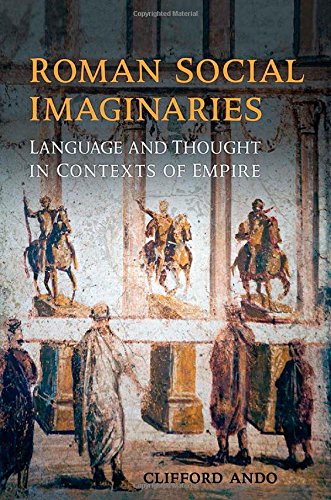

Most ebook files are in PDF format, so you can easily read them using various software such as Foxit Reader or directly on the Google Chrome browser.
Some ebook files are released by publishers in other formats such as .awz, .mobi, .epub, .fb2, etc. You may need to install specific software to read these formats on mobile/PC, such as Calibre.
Please read the tutorial at this link. https://ebooknice.com/page/post?id=faq
We offer FREE conversion to the popular formats you request; however, this may take some time. Therefore, right after payment, please email us, and we will try to provide the service as quickly as possible.
For some exceptional file formats or broken links (if any), please refrain from opening any disputes. Instead, email us first, and we will try to assist within a maximum of 6 hours.
EbookNice Team

Status:
Available5.0
37 reviewsIn an expansion of his 2012 Robson Classical Lectures, Clifford Ando examines the connection between the nature of the Latin language and Roman thinking about law, society, and empire. Drawing on innovative work in cognitive linguistics and anthropology, Roman Social Imaginaries considers how metaphor, metonymy, analogy, and ideation helped create the structures of thought that shaped the Roman Empire as a political construct.
Beginning in early Roman history, Ando shows how the expansion of the empire into new territories led the Romans to develop and exploit Latin’s extraordinary capacity for abstraction. In this way, laws and institutions invented for use in a single Mediterranean city-state could be deployed across a remarkably heterogeneous empire.
Lucid, insightful, and innovative, the essays in Roman Social Imaginaries constitute some of today’s most original thinking about the power of language in the ancient world.